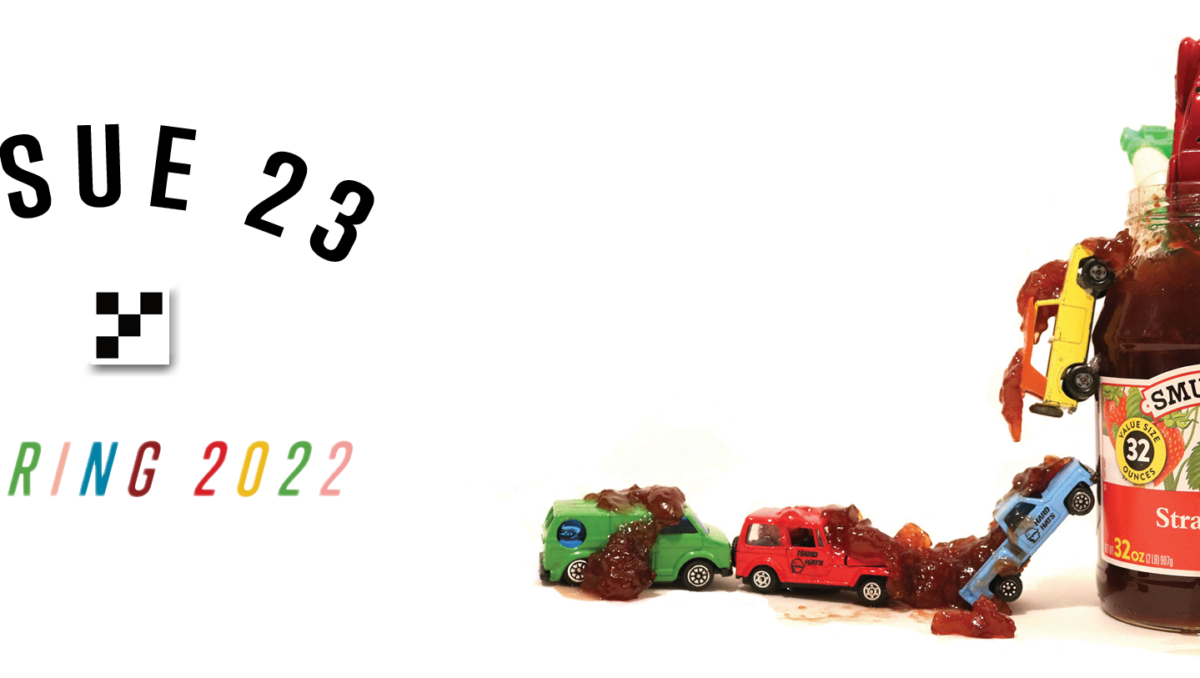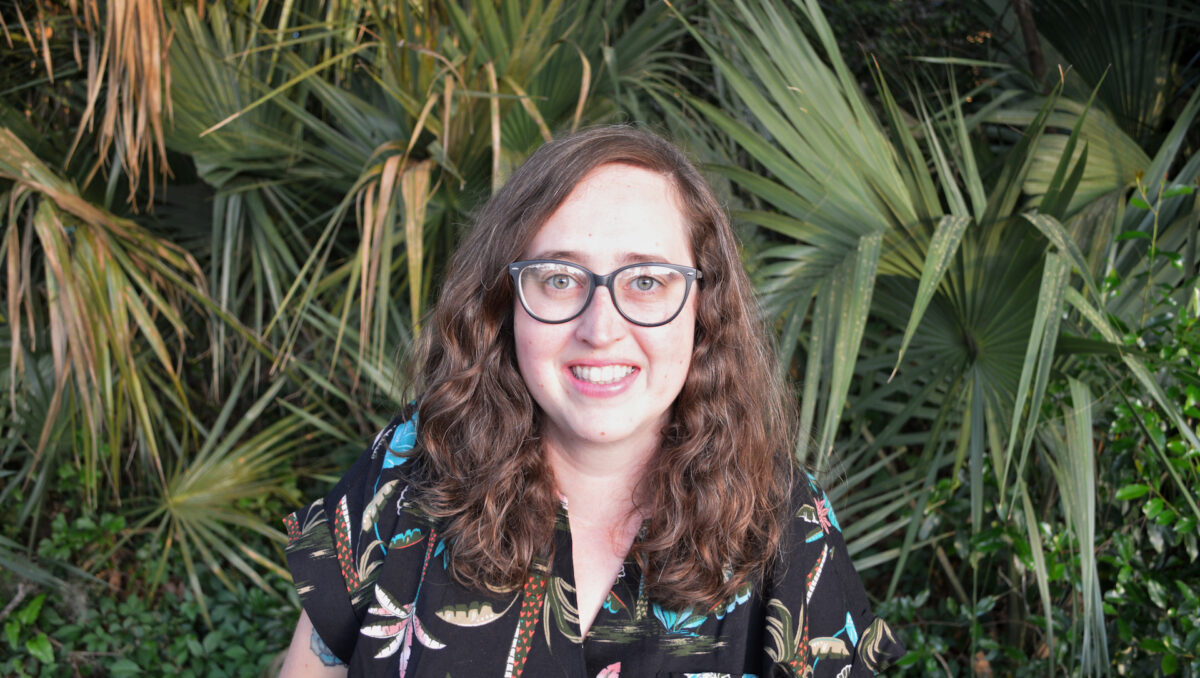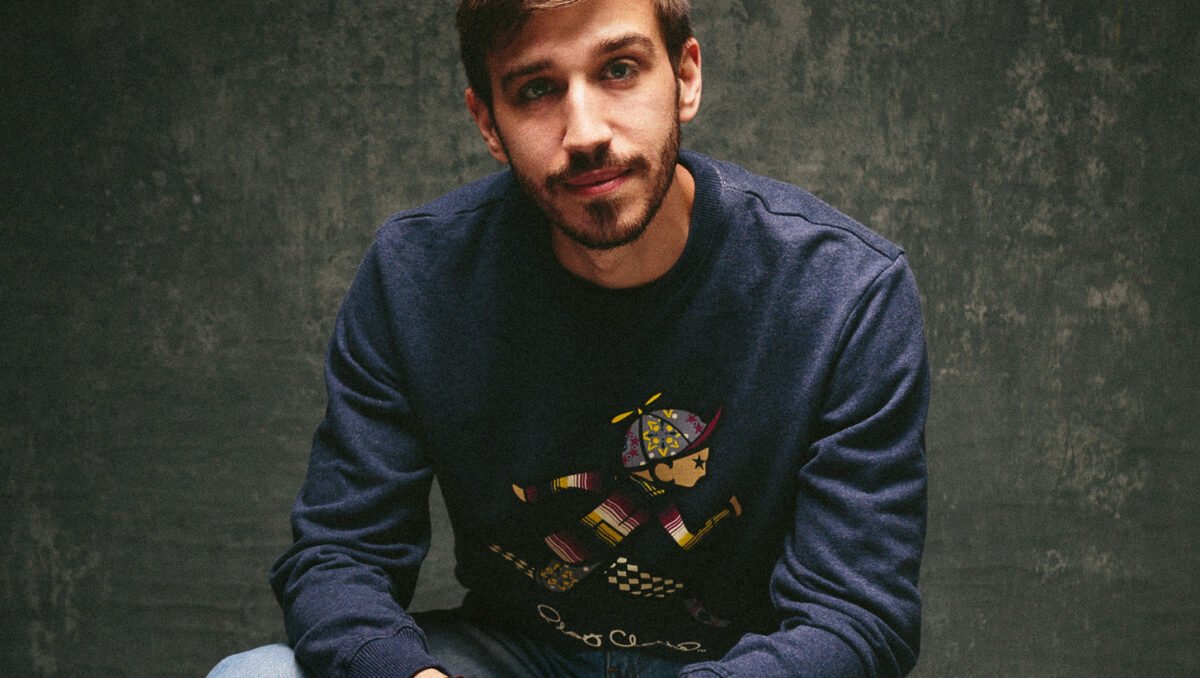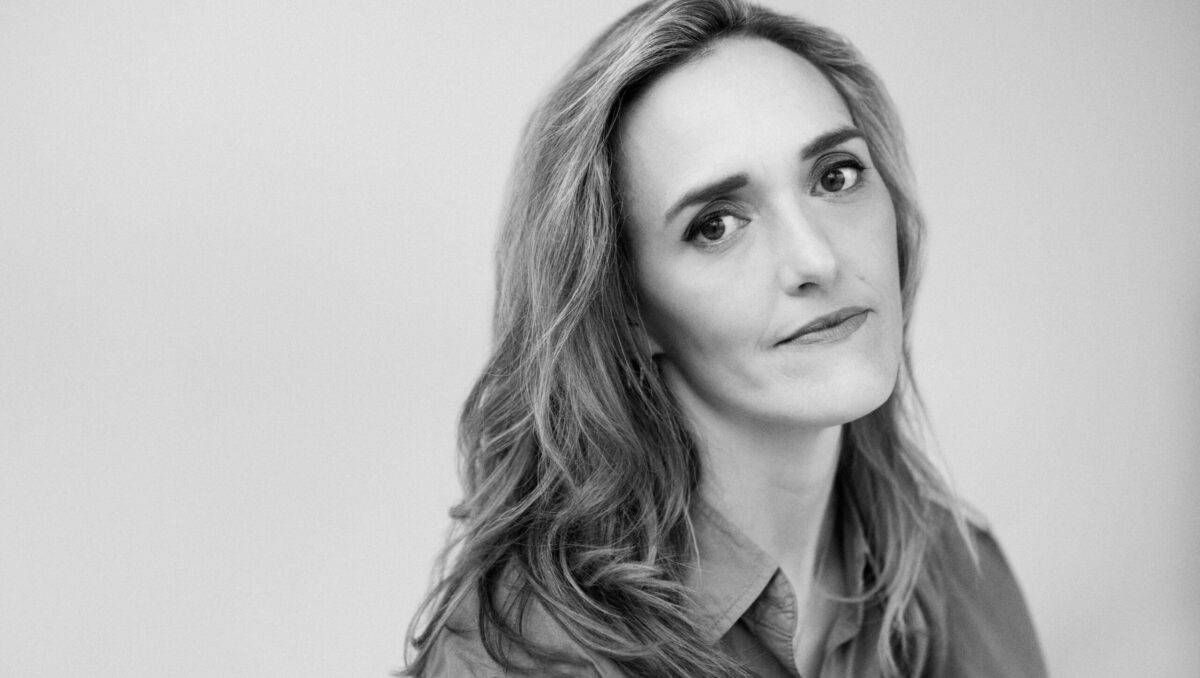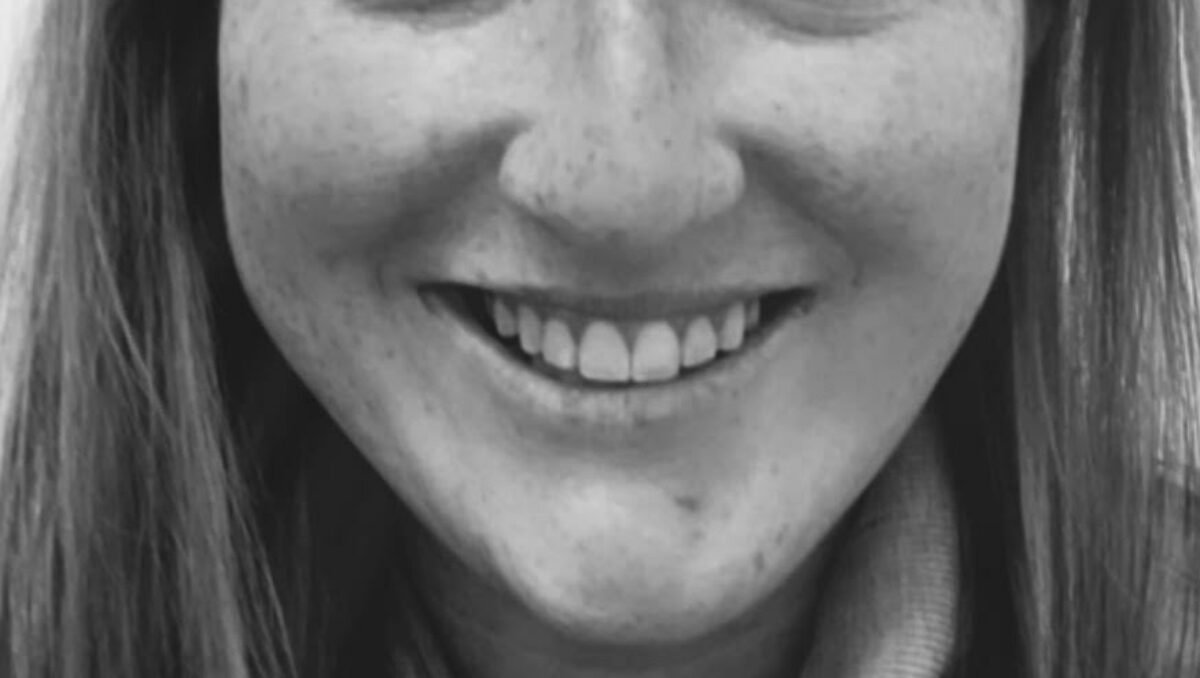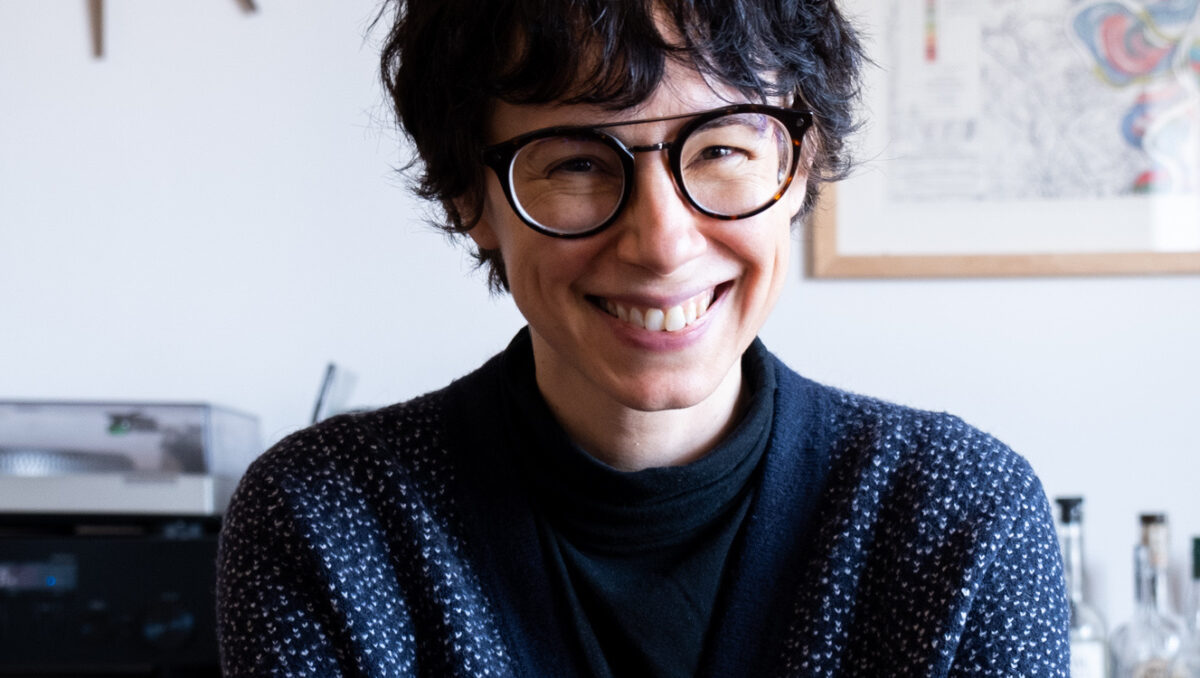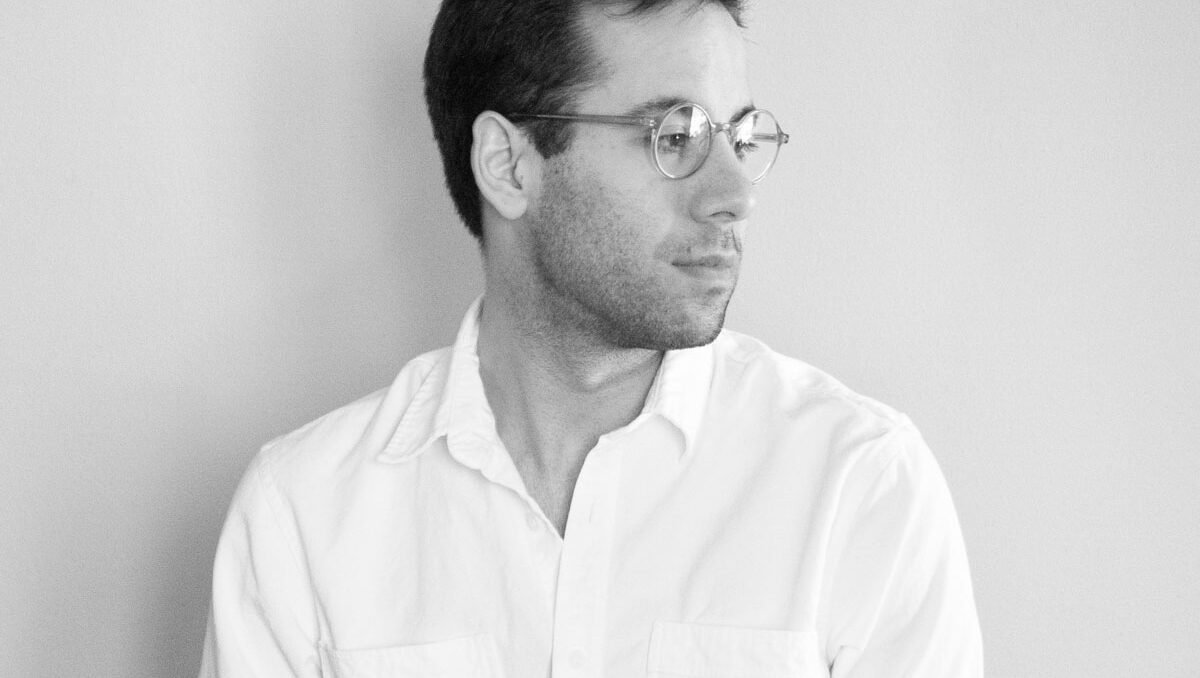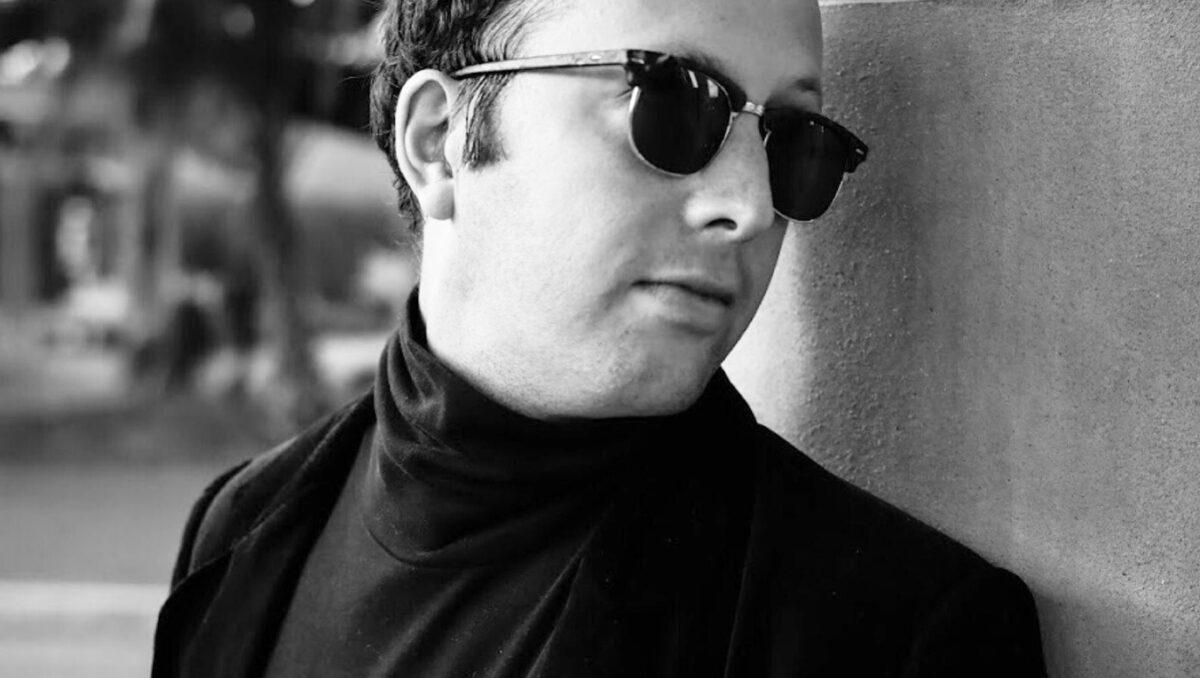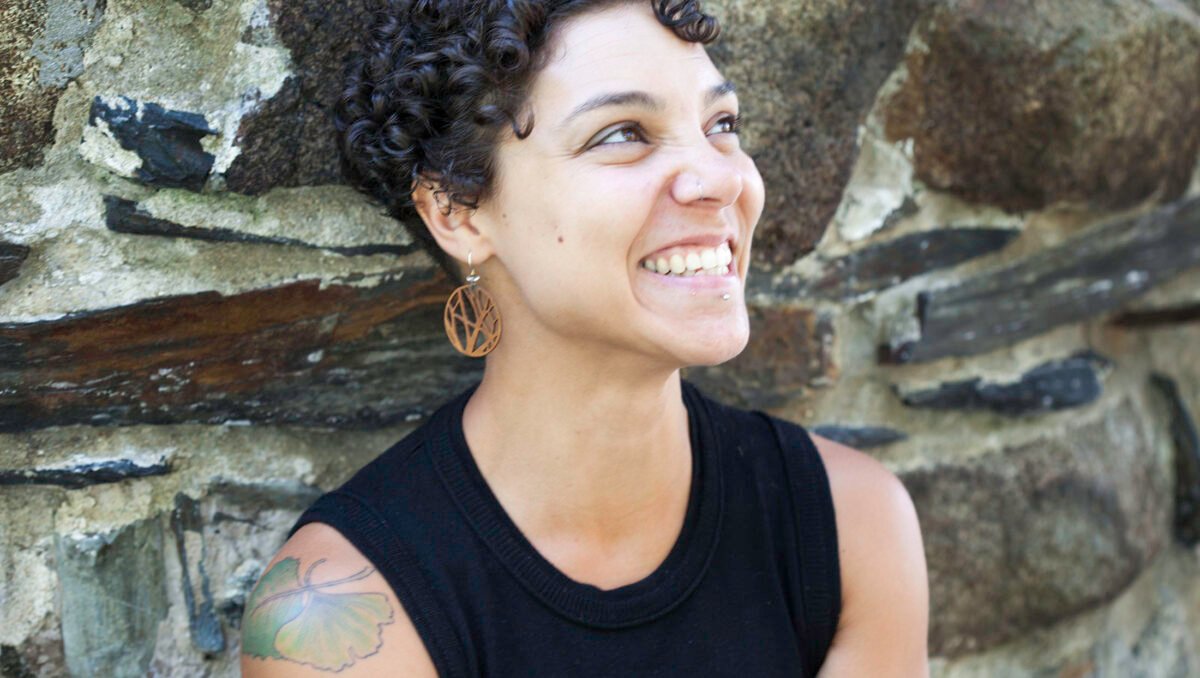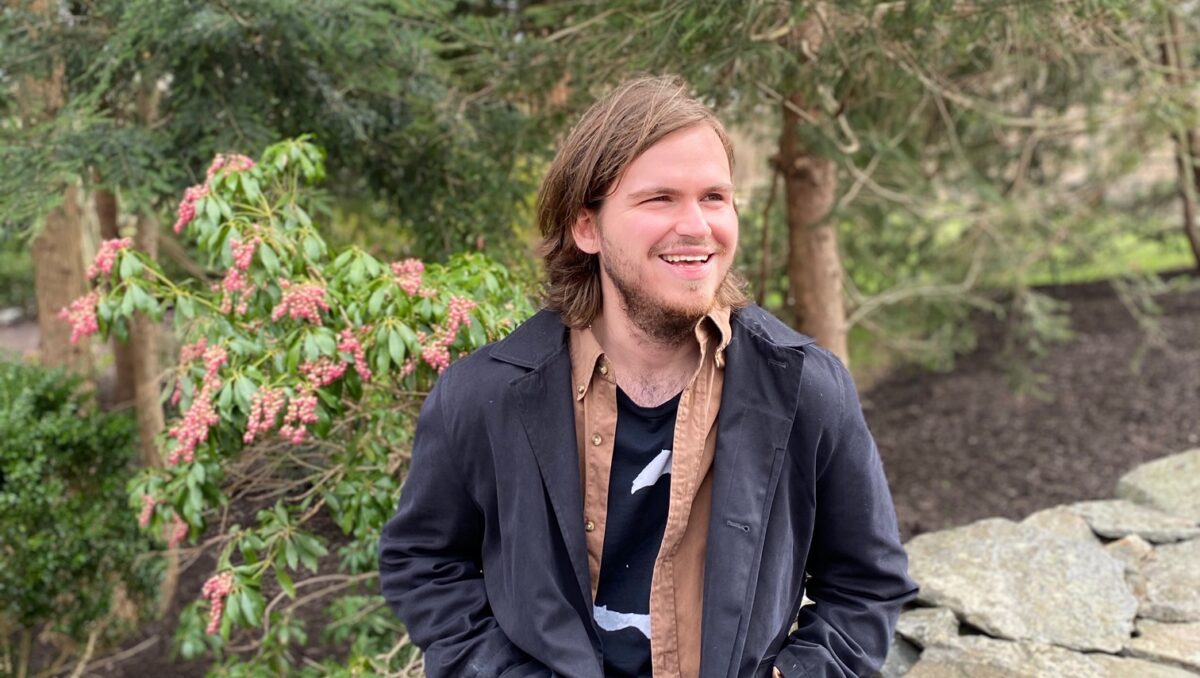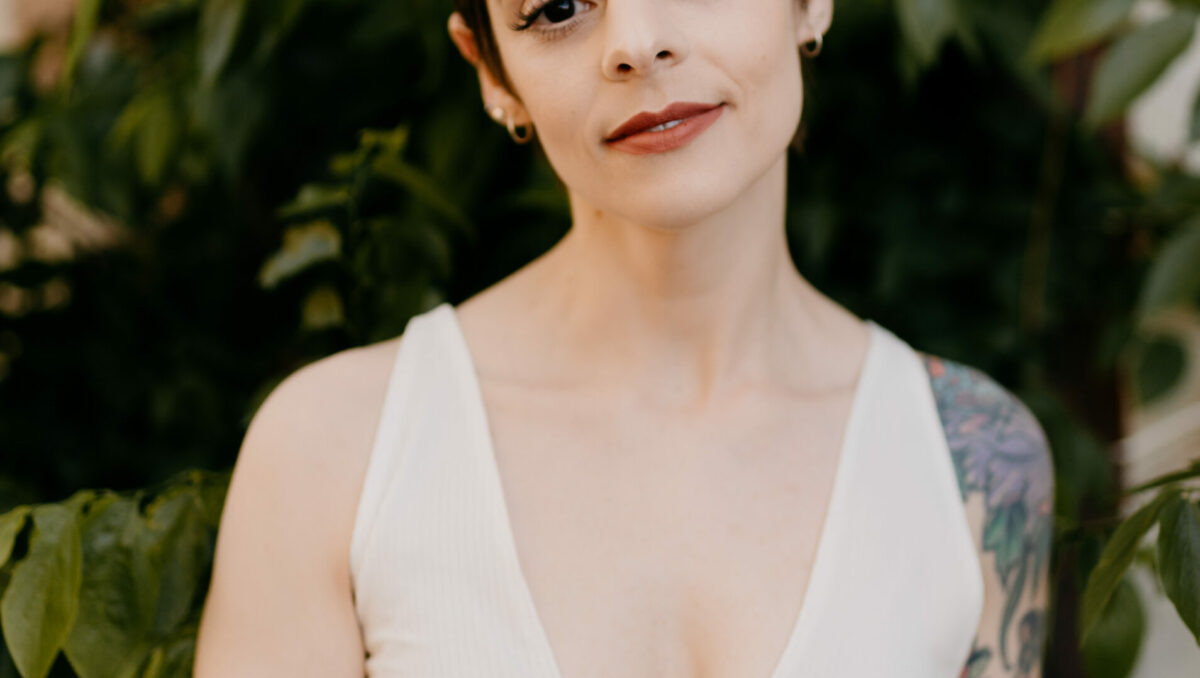ISSUE 23

POETRY
SELF PORTRAIT AS MINOTAUR by Kiyoko Reidy
AN ORDINARY WEAKNESS by Mikko Harvey
TWO POEMS by Xochiquetzal Candelaria
DER KLEINE KATECHISMUS by Constance Hansen
CALLS TO ORDER by Stephanie Kaylor
& LORD KNOWS by Kwame Opoku-Duku
TWO SECTIONS FROM “THE BREAKUP” by Mag Gabbert
THE STATE BIRD OF FIGURATIVE LANGUAGE by Matthew Tuckner
CENTO FOR LONGING by Rage Hezekiah
ARS MORIENDI (FOR JEFF BEZOS & ELON MUSK) by Benjamin Aleshire
TWO POEMS by Perry Janes
FALL by Joshua Garcia
MOVEMENT by Brett Hanley
FICTION
THE GAIN by Jennifer Solheim
THE APPARENT PATH by Casey Guerin
ART
- Published in All Issues, Issue 23, Recent Issues
ART by Anna Beth Lee

“Traffic Jam”
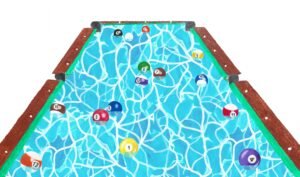
“Pool Table”
Anna Beth Lee is a rising sophomore at Drew University. “When creating, I ask myself: How can I make people think when they view my art? How can my art be like a fun guessing game? How can I bring that “A-ha!” feeling to viewers when they figure out the wordplay in my art?
“During a trialing school year of uncertainty, I sought to find the joy and humor in everyday objects. Using Homophones, I investigated creative ways to depict two words that sound the same, but have different meanings. This whimsical approach allowed me to shift the way that I view the world: There are endless connections that can be made between concepts and objects, and finding similarities and patterns in life cause one to realize that aspects of our world are more relatable than we may think.”
Here is a link to her online portfolio, which features her photography, dancing, and drawing: https://annaelizabethleetn.wixsite.com/myportfolio
- Published in Issue 23, Uncategorized
MOVEMENT by Brett Hanley
I said, tie me up, tether me to something.
I want to show the universe I’m ok
with being stuck. I craved severe stasis.
Why did everything have to be so dark,
so intense with me? True stasis is contrary
to our nature, contrary to everything,
she told me, and I rolled my eyes,
and I went to the home improvement store,
and I bought some rope, and I presented it
to her like it was a necklace of real pearls,
the kind that pass the teeth test grittily,
and she took it and bound me to a chair.
I’ve always preferred the Jeff Buckley
cover of our song to the Cohen original.
It’s partly the way he sighs at the beginning
of it, like someone who woke up in a meadow
from a dream of drowning in the lake,
the leeches at once swooping doves.
- Published in Issue 23
TWO POEMS by Perry Janes
AT THE Q&A, THE FAMOUS FILMMAKER TELLS ME: “FORGET THE CAMERA. THAT’S JUST A TOOL. THIS COMES DOWN TO HOW YOU SEE THE WORLD.”
But which one? There is a world where every green
traffic light is a small terrarium filled with phosphorescent
moss, salamanders basking in the sun, the rush of cars
passing underneath mysterious as wind that kicks up
from nowhere much at all. Squint just so. You’ll see
how blood on a scraped boy’s knee looks faintly like
lipstick, flayed skin hanging from his kneecap—
mascara from his mother’s face where she leaned to kiss
his legs, O, darling. You can see it, can’t you? Lift the light-
box. Hold the lens. Ours is a world cut
with other worlds. In one we share the bacon-wrapped
hot dog grilled on a shopping cart sheet pan. In another
you rub your lion’s tail rough between my legs. Here is
a truth: one of us will go first. In each world we are alive
now one of us will go first. I’ve been told it’s embarrassing
to say it so plainly—exposition, ever the enemy
but tell me: how else should I say it? If I go, I go
from you not out of, but into a world where trees
welcome fire, perched in the hills like old men
with their pipes pleased to smoke their own erasure.
If I stay, I stay surrounded by curtains that ripple like brook
trout in a lake, the neighborhood alley cat panhandling
her shot glass of milk on the steps. If I go, listen, if I go,
I go from you into a world where IV bags swaying above
their hospital beds ignite like lanterns, moth-dusted,
wheeled pillars guiding patients down one aisle,
another. A world where a lizard’s corpse flattened
in the road rises with the moon, lit by the tides,
chandelier of bones, each joint grinding sparks that dazzle
desert motes. Where your clipped fingernails glittering
near the trash are small cicadas buried in the grout,
hibernating seven years until bursting forth with wings
and shells, a call exactly like your laughter. Listen.
If I stay. If I am lucky enough to stay another year,
another season, another afternoon with you, Tina,
I stay in a world, this world, with its pizza boxes littered
on the curb like mouths soundlessly pried open. Dumplings,
their crisp bottoms hissing danger from the pan. A thousand
wild poppies bloomed along the highway representing
only themselves. Their bodies. Whole in their bodies.
KILLER OF SHEEP
–after the film of the same title by Charles Burnett, 1978; for my friends.
At night, my father leans above his draftsman desk
to sketch the car, its wheels, the trunk not yet
filled with floaties or baseballs, and when
my mother rises, when she calls him back
to bed, when she slides her hands down
the down against his nape, her fingers
catch, briefly, in the teeth of small gears
clicking behind his nod. Or not. I’m told
some nights what we do becomes who we are.
If I had the choice to make myself
machine, to spit diesel between my teeth,
or to make myself desired, touched
not like a panel with buttons and switches
but something entirely without utility,
pleasurable just to hold, which would I choose?
In the movie, my favorite movie, the mother
shimmies in her nightdress to hold her husband
close, his children running rings around his knees,
each struggling to contain what they understand
will leave before it leaves; the man
leaving anyway, knowing a dozen sheep wait
on the slaughterhouse floor for the iron
tongue that slithers from his palm to drop them
one by one by one by one, and I can’t help
asking: how long does a man like that keep
any sense of proportion? In the movie
or my kitchen, I can’t remember which,
someone’s father, I can’t remember whose, leaves
and says find me when you’re ready. I imagine him
out there dropping clues for them (for me?)
to follow. I imagine he isn’t very good at it.
Pared fingernails glittering beneath a stoplight,
smashed coffee cups leaking on the corner.
Clue derived from the ancient Greek clew
meaning the ball of yarn some idiot
hero unspools as he enters the winding maze;
to retrace his steps; to escape. It’s all
such serious business, isn’t it? This searching
for one another? A man blows a kiss
and snaps the deadbolt closed behind him.
A woman scours the streets for any trace
of movement. A boy unpacks
his father’s tools to practice lines,
his sketches and schematics, the swoop
of charcoal etched on vellum, a man’s
broad shoulders coming into view.
- Published in Issue 23
DER KLEINE KATECHISMUS by Constance Hansen
I watered the plants. I plucked their dead leaves. I fed the children and dog. I asked the coffee to raise spirits. I made no beds. I made an inadequate donation to a parentless child, survivor of the car wreck that killed my friends. I paid with my thumbprint. I sent another friend money who sent another friend flowers to celebrate a new baby. I pressed C to confirm my vaccination appointment. I wrote STOP to free myself of Black Friday promotions. I paired small socks. I pulled fine hairs off hairbands. I took all the care that’s never seen. I remembered what I know about a mother’s worth, best estimated in her absence. I drank again the draught of orphan’s wisdom. I shook out my raincoat and collected bay leaves from one neighbor, tulip bulbs from another. They bobbed in my tote as I kept walking and walking the dog in a downpour. I caught a familiar chill. From the bath, I texted with childhood friends. I texted my brothers the news and we all sent up prayers. I called Seattle City Light to report a downed line. I called the pediatric nurse and said I was someone’s mom. I called God a prick and asked why do I quarrel with a void, a vacancy and a vacuum? Because they are the holy trinity and my catechism was the small one, impossible to be rid of, like glitter.
- Published in Issue 23
THE APPARENT PATH by Casey Guerin
There’s a level of trust required to shoot a dart across a stage and into another person’s open mouth that few people can achieve. I think of the birth of my son, the way the world fizzled to black as the doctor threaded the needle between my legs to break my water; of how I came to, hospital bed tilted back so my legs were high above my heart, the doctor’s hand firm on my arm, her face close to mine. “It’s not what you planned, but we have to deliver your baby now,” she said. “I don’t have time to explain why. I will later. Right now, I need you to trust me. Do you understand?” I couldn’t remember this woman’s name. We’d never met before I opened my legs for her to pierce my birth. I nodded. It wasn’t a lie; I trusted her, innately. What else could I do?
Each performance, the stakes must feel that high, in order to achieve success. No matter if the audience numbers five or five hundred; our ten minutes onstage is life or death, precarious as birth, as liminal a place.
Ten minutes was the exact length of my son’s birth, a tidy coincidence if you want to draw a line between the life I live now and the one I left behind in that operating room. Ten minutes from the time they wheeled me into the operating room to the moment they lifted him from my abdomen and above the curtain, so I could see for myself his screaming purple face. I had asked ahead of time not to hold him; I didn’t know if I would be able to let go. Twelve years later, I cannot quite remember his face—the shape of his nose, the tiny eyelashes, if his eyes were crumpled-shut or open wide—nor can I remember the timbre of his first cries. I see only the doctor’s curly brown hair frizzing at the edges of her surgical cap, haloed in the neon holy light of the overhead fluorescence. It had been close, she explained to me later. “When we opened the uterus, we noticed the nuchal cord, wrapped around his throat three times,” she said. “It’s lucky we operated when we did, there was barely any blood flow left.” An ominous beginning, I thought, then freed myself of the worry. His life was no longer mine to fret over. Let his new mother, his postnatal mother, make metaphor of his life.
*
My partner and I wear matching black catsuits pinned with rhinestones sparkling fuchsia, violet, emerald, and gold beneath the spotlights circled high above the stage. Before each performance, my partner tucks his penis, a trick taught to him by one of the drag queens who performs across town. We appear onstage as silhouettes, our faces obscured by black cat-eye masks. The only thing identifying about us is our hair; his a carrot-orange flame atop matchstick body, mine a long black curtain fringed by a thick bank of bangs. Both pass for our original coloring, though of course neither is. Vegas is rife with talented hairdressers—expert secret keepers, liars by trade.
We wanted to call our act “Electrum,” but that was already taken by an upcoming Cirque du Soleil show. Instead we settled on “The Apparent Path,” one of the definitions of “arc,” ripped right from the dictionary. A placeholder, I thought, but then, like so many temporary things, it stuck. The full definition—“the apparent path described above and below the horizon by a celestial body”—inspired our outfits, each of us meant to embody some kind of galactic sensibility. Mostly, we looked cool.
I learned dart blowing one night in the back of a bar, from an older man long retired from the act but eager to pass on his knowledge. Everything about him was deteriorating—eroding hairline, crooked nose betraying a lifetime of fistfights lost, drooping earlobes and nipple rings and soft pouches beneath his eyes. Even his tattoos, scaling his arms and legs and reaching across his chest and down into his loosely-belted pants, were indecipherable, made hieroglyphic by time.
“People think it’s a party gag, some kind of magic trick, but there’s no smoke and mirrors to it,” he said. “It’s an art.”
We practiced that night then many more, first with stale pretzel rods pooled in cups lining the bar, then with real darts. Only once I’d mastered the hand throw would we progress to blow darts, the actual prop used in the act.
*
People—mostly men—assume I came to Vegas for a fresh start, but the truth is I was born here, same hospital as my son. Nowhere else intrigued me enough to leave. Not everyone working on the Strip has a sob story, but sometimes I let strangers graft those kinds of backstories onto me. Easier than unspooling the real story; more interesting, too. Alcoholic family, abusive stepfather paired with a mother steeped in denial, trouble at home, trouble in school, crack, vodka, fentanyl. Everyone has their own idea of the worst thing that could happen to a person.
*
When the man who taught me his art died, I started looking for a partner. It wasn’t the type of thing you put an ad out for. I tried to discern potential in passersby, sniff them out the way the old man had done me. I needed someone serious, someone willing to believe in me, in something as outrageous as an act. Someone in need of money and bereft of the everyday scruples that caused most people to—wisely—gasp at the audacity.
I found him at the bus station, performing sleight of hand tricks to a small crowd with nothing better to do as they waited for their way out. He seemed almost to be performing the tricks for himself, those gathered merely background to his own amusement. He hadn’t left a hat upturned in front of him, though someone had tossed a dollar bill where one might be, others adding handfuls of coins. When he finished the few circled around him clapped and he nodded at them. As they drifted away I lingered, watching his long, bony fingers shuffling through the deck, flipping cards this way and that in order to align their orientation. At last, he fingered the bill from the coins and pocketed it, then made his way across the station to an idling bus. I stopped him, hand firm on his arm.
“I have a proposition,” I said. He abandoned the bus. I’m still not sure where he was headed that night, only that he never made it. Was someone waiting for him, somewhere, in bed with a light left on? A local suburb, a city halfway across the country, or farther, right up to the edge of the East Coast? I used to imagine it, sometimes, but better not to know too many particulars of his life. Caring too much for someone made it difficult to perform the act; I learned that with the old man, in the end. Now it’s been so long it feels like we’ve always been halves of each other, belonging to no one and nowhere else.
He learned quickly, a fact that pleased me less for its efficacy and more for what it proved about my instincts. We’re a good match; I handle the business end of things, booking the gigs, sweet talking our way into regular jobs, following up on invoices and making sure we’re fairly compensated for our work. He designs and sews the catsuits and selects the music for our act. There isn’t much choreography to it, but what little there is, he takes care of.
Mostly we open for bigger acts, acrobats and contortionists. Ours alone isn’t enough to carry a full show, but we work regularly at the casinos too small to afford billboards along the Beltway, making enough to get by. It helps that at every casino on and off the Strip we drink and eat for free. Everybody knows everybody, if you work here long enough. We all owe each other something.
*
A Friday night, 10 pm show. We were opening for a comedian, not our usual fare, but when I’d met him several weeks prior, I suspected he might go for something like us. He had a crush on my partner. We’d opened for him a few times and it seemed to work, our strange performance a perfect precursor to his oddball, off-color comedy. Not my taste, but someone’s, it seemed. Some nights we drank with him after, though he tired me and it wasn’t my nature to dole out pity laughs. I stayed for my partner, who wasn’t interested in the comedian but didn’t want to jeopardize the gig. We agreed on a two-drink maximum, hard out, after which we made excuses and left the bar together, parting outside the front door to return to our separate apartments. In all our time together, we’d never eaten dinner at one another’s home, or met each other’s friends, family, lovers. Sometimes I thought about breaking our forced distance—how was your weekend, what bus are you catching, do you like Thai, would you like to grab a late dinner after our show?—but even these innocuous questions felt dangerous. Any relationship starts so simply. It can only become more complicated from there.
It’s odd, I suppose, to trust someone who remains such a stranger, but maybe strangers are the only people we can trust that deeply. Not true strangers, not the ones we pass on the street and never speak to or otherwise encounter, but the living ghosts we collect, those who witness our every day and never know our names. The mailman, the 7-11 night-shift cashier, the one dry cleaner capable of steaming a rhinestone catsuit. The Deuce route weekday bus driver, the three-doors-down neighbor who smiles when you pass each other in the hall. The nail technician, the mother-aged woman who waxes every inch of your body, the chiropractor you see every other week to realign your back. The pharmacist who knows what pills you take and how often, the people you sleep with then forget, the doctor who delivered your baby, the adoption agent who sealed shut your case, the faceless family who took your child and made him their own.
*
10:13 pm, our act over, the comedian’s braying laugh at his own jokes background noise as I changed out of my catsuit. The door whined open and I turned, expecting my partner.
I don’t remember my son’s infant face but I recognized him the moment he appeared in the doorway of my dressing room. Floppy blond hair, square black-rimmed glasses, socks sagging down his scrawny legs. His high tops were coming untied and his shirt and shorts hung off his body. Thirteen years old. Of course he was my son. My body contracted at the sight of him.
“I snuck in through the back entrance,” he said. “No one really seemed to notice a kid on the casino floor.” Though in my street clothes, I still wore my mask, the last article I removed at the end of the night. I began untying it then stopped. I hadn’t prepared for this moment; I couldn’t think how to arrange my face. There was the gulf between the emotion I wished to convey and what I was actually feeling in the moment, but I couldn’t articulate it in the moment over my pulse thudding in my ears. He wasn’t nervous, though, never explaining how he’d found me or how he’d arrived. No need for introductions to the person once a part of you.
“Can you teach me?” he finally asked.
There was a small rehearsal room backstage that no one really used. I fetched pretzel rods from the closest bartender on the floor and caught my partner as he prepared to leave. A favor, was all I told him. Just a few minutes. I didn’t tell my partner who the boy really was, but if he thought the boy’s sudden presence was odd, he didn’t show it. It was easier to teach him with another person there to demonstrate.
He learned quickly, faster than my partner, even. He had on his side the fearlessness of children that age, the macabre fascination with anything that even whispers of danger. He came backstage every night for weeks, where we took advantage of empty dressing rooms to practice, and though I wondered, I never asked if his parents knew where he was, who he was meeting, what he was up to. He wasn’t my child, not really, not anymore; let his real mother worry.
Though I didn’t tell my partner the truth, I decided to be honest when faced with my son’s questions. It felt important to let him decide when he was ready to know more, some leftover maternal instinct, maybe. But the questions never came. Watching him practice with us, I wondered if I was wrong, if he wasn’t my son, if it was all just a strange coincidence. I wondered if my chilliness was genetic, ingrained deeply enough that his real parents’ love couldn’t undo my DNA.
He stopped coming one night, then another, then the next. There’d been no promise but still, it felt like betrayal. One I deserved, most likely, having left him first. Good acts require balance; for every risk a triumph, a resistance to certainty but also scaffolding to lead the audience to delight. My son evened our score. I should have felt satisfied.
I saw my son next on TV, the same floppy hair and glasses, but in a tiny satin blue suit. He’d have done better to copy our catsuits as well. His partner was a girl who looked about his age, in a matching crinoline-puffed dress. Watching their act was like watching a homemade movie of myself, slow blinking into focus at the beginning, hazy in the way home videos imitate memory. Their music was big and bossy, too dramatic, though it wasn’t clear if they’d chosen it or the program had doctored it in for viewers’ enhanced enjoyment. There were four judges on panel and each gasped in turn when it became clear what this young duo meant to do.
The act itself was flawless. I wondered, then, about the girl; she played the part of my partner, while my son acted as me, sending the dart shooting across the stage to be caught between the girl’s teeth. Did they know each other from school, or their neighborhood? Did they love each other? Had my son noted not only the act’s techniques but my aloofness? When she caught the dart, her smile revealed shining rows of braces, sparkling like rhinestones. When the camera zoomed in on the dart clutched between her teeth, I could see her lips were chapped.
They were unanimously voted through to the next round, taking them from LA to, ironically, Vegas. I thought then about showing up, though whether the show would be live or had been pre-taped and long-ago decided, I didn’t know. When I saw my partner the next night, he was furious. “He’s only thirteen,” I said, as a defense, but remembered my partner didn’t know this was my son. “What an asshole,” I said.
*
My son’s birth was so sudden, so urgent, that there’d been no time for drugs. The anesthesiologist pushed morphine into my veins but warned me I wouldn’t feel its full effects until after the birth. I felt everything as my son was cut from me, though now I remember nothing, save for the strange sensation of a nurse roughly shaving me with a cheap plastic razor. As promised, the morphine kicked in as they sewed me up, my son already whisked off to be placed in his other mother’s arms in another room in the hospital. This is important, I remember thinking then, there’s something happening here, but that was all I was capable of reaching before the numbness overtook my body and I could only sit outside myself and watch as they taped gauze over my incision and wheeled me out of the OR and down the hall to a room at the end of the maternity ward, where I couldn’t hear the newborn babies crying, only the underwater sounds of sonograms being performed on expectant mothers in nearby rooms. I knew there was a nursery somewhere on the floor but I couldn’t get my legs to work. At night the nurse went to close the blinds, but I asked her to leave them open, the glittering lights of the Strip a barely visible line above my view of the parking garage, like a necklace laid flat inside a velvet box. Even now, thirteen years later, I feel the rough callus on the nurse’s palm, the way it rasped against my hand, and I hear her gentle shushing, white noise like a lapping shoreline or a steady tapping rain, as she sat with me. I didn’t want to think about my son being held by someone else in another part of the hospital, so instead I thought of all the things that might happen in ten minutes: a blood orange sunset, a mile run around the high school track, a quick trembling earthquake, a whale surfacing for breath, the live concert version of a favorite song. So much of life took place in such small increments. I recited the list to myself, a kind of counting sheep, but still, I could not sleep.
- Published in Issue 23
THE GAIN by Jennifer Solheim
While conducting fieldwork in Morocco I lived in a women’s pension, female bodies in conversation. But I walked the streets of Rabat alone. I covered my blond hair with a headscarf, and plotted routes to marvel at the city with no distractions. The prayer towers and palm trees, the narrow neighborhood streets with vivid blue doors. The smell of roasted meats. Against my tunic and broad pants, homeless mutt flanks—only purebreds wanted. Then that acrid odor, the tell-tale stain on the wall. Whether dog or man, territorial pissings reminded me. This was male space.
When I was in coursework, I had pictured fieldwork like I was a spy, infiltrating masculine domains in Morocco, from mosques to soccer clubs to strip clubs, looking at social contradictions. But there are hypocrisies in every society. Once I began work on the Years of Lead, I saw that there was already a significant body of research on male space in Morocco, since all public space is male: cafés, shops, public offices, houses of worship, the streets. So I decided to work on the social and political memory of women in the harem, the private space within each home forbidden to men outside the family. Women dominate the harem—although “dominate” isn’t quite right. The mothers and grandmothers may set the daily schedule for cooking, eating, and cleaning, but ultimately the husband and father determines household mores and folkways. Like all spaces, the harem is also circumscribed.
My interview subjects were grandmothers, mothers, sisters. My favorites were the bayrat—the spinster aunts. I wrote an entire chapter on their particular understanding of King Hassan II’s reign, and how the bayrat’s intimate experiences shaped their memory of the political events during those thirty-eight years.
New eras always begin with such hope, it seems.
*
Maybe that’s where I should begin the narrative about Ingrid. With something hopeful.
Cultural anthropologist Ingrid is part of my new project, which focuses on mothers in American academia who live apart from their children because of their jobs. In my attempts thus far at a narrative about a mother, her twin sons and fraying marriage, I haven’t found the opening. Do I start with the birth of the twins? When she was hired as an assistant professor?
The working title of the project is Radiative Losses. I’m bringing together ethnography with physics and neuroscience. Radiative loss: the energy that flies off when an object moves in cyclical motion. Mothers who teach in one state drive or fly back to their children in another, on a loop, over and over again. What is lost in the relationship with her children? In her career?
The title implies the central question: beyond career, what is gained? I’d studied neuroscience in undergrad and always geeked on physics. I brought these fields together to focus my personal engagement, so I wouldn’t get too angry. If ours were an egalitarian society, women’s careers would be a given. So I refuse to categorize career as the gain. It should have been ours already.
Instead, I’m interrogating whether or not living apart from children for career means less tangible, invisible gains.
Of course, the father is involved here too. But in focusing on mothers in heteronormative, dual-career academic households, I’m looking at the parent who is more vulnerable by deign of gender inequality in the workplace and home. When Ingrid and her husband decided to marry and have children, they wanted to figure out career and family together. They had agreed: two academic careers in the same geographic area. Non-negotiable. Part of the plan. Her husband got his job first—she defended her dissertation when she was six months pregnant. Then, when the babies were just over a year old, her husband changed his mind.
Perhaps that’s where I should begin.
*
New York City, Upper West Side. Ingrid and the twins are doing what they normally do in the afternoon: looking out the window. The kids are leaving the middle school up the street. Boys in low-slung jeans, a few girls in hijabs, chatty adolescent English shot through with Spanish, Arabic, and other languages. This is the kind of place she wants to raise her boys. But they’re not settled yet. First she needs to get a tenure-track job, and she and her husband need to negotiate spousal hires with the university administrations.
She’s still unsure why they didn’t try to negotiate it when her husband was offered his position here. He kept saying one step at a time, and she was exhausted and distracted with worry about the Cesarean section. She was a first-time mother; it was geriatric pregnancy, the medical term for expectant women over 35; and with twins, it was considered high risk. Visceral, immediate, the pregnancy, the birth. An extra year on the job market had meant nothing.
Now, just as the boys turn one, a position in her field is announced. It’s in Chicago at a prestigious university, and the job description reads as if they had Ingrid’s research in mind.
No longer do the twins simply gaze out the window: they walk. Or rather, they careen and zigzag across the herringbone-patterned hardwood in the living room. Hugo stumbles and falls, hits his nose on the floor and begins to cry. Ingrid rushes him to the kitchen on one arm. She worries that Oscar will pull a lamp down on his head while she’s gone. Even with childproofing, things go wrong.
She holds the ice pack to Hugo’s tiny face.
“Da-dee!” calls Oscar. Ingrid looks down the street. Her husband is coming up the sidewalk. Time to talk about Chicago.
“Her husband” sounds sinister. I should give him a pseudonym, too. Felix. Or Mats. Try starting in medias res.
*
Mats makes gin and tonics and hands one to Ingrid. They settle into the living room together, the late afternoon routine: they have a drink and talk while he plays with the babies. He airplanes Hugo above the activity pad as Oscar reaches with his fat baby hands. He wants a turn. They’re learning early how to wait.
After Mats has given each boy a ride, he picks up his glass again.
“Exciting news,” Ingrid says. She tells him about Chicago.
“Exciting indeed,” he says. “So we can negotiate for a spousal hire both here and there, if you get an offer.”
“That’s the plan, man.” They high five. Kiss. Then, Mats retreats to the home office for email and grading while she gives the babies dinner. The hours are long, but the years are short. Once she gets a job, she won’t have these long stretches with just her and the boys. She should enjoy this time with them while she can.
*
Analysis is dependent on context in cultural anthropology. The data are rooted in specific and subjectively interpreted circumstances. Consider this example of Ingrid with the newborn twins in her lap, sore and bleary from the C-section, trying, and failing, to breastfeed.
The day before, she’d promised to call Mats’ mother back. But she’d forgotten, or maybe she’d let herself forget. Mats’ mother always finds some way to undermine him, and by extension, them. At least there is an us, Ingrid thinks as she hears the tension in his voice on the phone. Yet when he hangs up, he throws himself down on the couch. “How could you forget to call her? You know she takes it personally.” He heaves a sigh. “Our entire marriage is shit.”
The implication of “entire”: Ingrid couldn’t handle sex for the last few months of her pregnancy. And now look at her—per the doctor, no sex for at least six weeks. The wound in her lower abdomen might be only a few inches wide, but Mats even said it to a friend on the phone in the hospital: When he looked over the sheet to see the babies delivered, she looked like an open can of tomato soup.
She’s not sure if he knew she could hear him. Her eyes were closed. He probably thought she was asleep.
She sets the babies down on the floor one at a time, then teeter-totters into the bedroom and closes the door. She’s afraid if she cries too hard her stitches will break.
Mats is feeding the babies tiny bottles of formula when she comes back. “I’m sorry,” he says.
“We’re both exhausted,” she said. “Please be kind to me.”
Here the data show the ways in which Mats demonstrates a propensity for emotional cruelty—Ingrid’s first hints there might be trouble.
But then there’s the question of what this project is about: mothers and children? Or husbands and wives? It’s true the radiative losses are threefold: motherhood, career, and marriage.
Maybe the marriage is where I should begin.
*
Rabat, Morocco. Ingrid locks eyes with Mats at a research foundation cocktail hour. They talk about the keynote at the conference, their research. Ingrid is spending these months in follow-up interviews with the bayrat. Mats is in town for a conference on his specialty, late nineteenth century British lit. He’s in the third year of a postdoc and on the job market, again. They leave the cocktail hour together and find a snooker bar. They both like a good gin and tonic. Mats rephrases what she says to be sure he understands her. He gestures with his hands to emphasize a point.
Hours later, he walks her back to the pension. Somewhere between the street and the moon, a male voice, then a female one, both laughing and speaking in Darija. “I love my research,” Ingrid says to Mats. “And I want a home. Is that so wrong?”
“You’d like to settle down,” he says and laces his arm through hers. “Me too.”
“Have a family,” she says. “It can work. My dissertation advisor got a spousal hire.”
They see each other every day until he leaves. Then, over email and video chat: possibilities.
Six months later they marry. She’s already pregnant—age thirty-eight, and they went without protection just once. Our shotgun marriage, they quip.
*
When Mats comes home the week after the announcement of the Chicago position, he has a set look on his face. “I talked to my mentor about a spousal hire,” he said. “The administration’s not playing that game right now. If I tell them you’ve got an offer, they’ll just let me go.”
“They’d still give you the choice, right?” she says. “They wouldn’t fire you.”
Mats walks into the kitchen to make drinks. His shirttails are partially untucked. When he returns he hands her one glass and takes a sip from the other. Then he settles onto the floor with the boys. “They actually did let someone go last year. He’s now a visiting lecturer where his wife was hired.” Fancy talk for being hired to teach per class. Shit pay. No benefits.
“That’s me if I don’t apply for the Chicago job,” Ingrid says. “And Chicago is more affordable than New York.”
“What if you commuted?” he says. The tumbler with the drink is sweating.
“I don’t want to see you and the babies only a few times a month.” Why are they even having this conversation? This isn’t how they agreed it would go.
“We aren’t going to leave New York for a city of urban blight surrounded by cornfields,” he says.
“That’s just mean.”
“There were 145 applications for my position, remember?” he says. “They could replace me no problem.”
“Why didn’t we negotiate for me to get hired at the same time you did, then?”
“You were overwhelmed,” he says. “No way you could have performed in an interview. I mean, could you imagine the job talk? With you, what? Eight months pregnant?”
“That would have been badass.”
Mats smiles, wan.
“We agreed,” she says. “There was no question we would negotiate. That’s part of the reason I was willing to do this.”
“But there are the boys now, and I have a job I love.” He gestures around the room. “It’s no longer just a theory.”
*
To fly means to move through the air, the sky, or the upper atmosphere. Outer space. To be carried on the wind with metal wings. Lift, drag, weight, and thrust. It can also mean to flee. You can disappear or vanish. Extreme motion. Dissipation. To fly also means to avoid or shun.
An afternoon in Central Park. The boys are steadier on their feet every day. They napped at the same time today, and Ingrid is close to finishing the application for the Chicago position. Who knows if she’ll even get an interview? For now, she’s here at the park, a sunny autumn day with her boys.
A butterfly. The boys reach their hands so high they’re reeling to follow it across the sheep field, that enormous stretch of green. They never look back to see if their mother is behind them. When the butterfly rises too high for them to follow, they don’t cry. Just watch it go, creature in flight.
*
Chicago, next year. Ingrid has just finished teaching the first class of her first-ever graduate seminar. Now there’s a talk, an economic anthropologist who works on Russia. Should be fascinating. After the talk, a dinner with the speaker and other faculty. She’s heard about the restaurant where they have reservations. Local, foraged ingredients. A superb wine list.
Since the term started, she is so exhausted at night that she does not fall so much as thud into sleep. Like after sex. She and Mats really need to work on their relationship. She’ll talk to him about it this coming weekend, back in New York, with her boys. Of course it’s stressful to be apart.
Out the window, on a patch of campus green, she sees Ixel, one of her colleagues, a linguistic anthropologist. Ixel’s husband—a sociology professor—and six-year-old daughter have stopped by to visit her, since she will be out for the evening. Ixel kneels on the grass in her pencil skirt to look at something in her daughter’s hands.
Ingrid picks a stray hair from her new silk blouse and checks her phone. She finds two messages from the nanny in New York. One is about eating and napping. The other has a video of Oscar and Hugo in Central Park, dancing in front of a mariachi band. Four chubby legs, four arms ending in little fists. Watch them go.
*
Ingrid flies to New York on Friday. After the boys are asleep and one drink, Mats doesn’t want to talk. He wants sex. Absence makes the heart grow fonder, or at least lends the body an urgent need. It’s a plus.
Back to Chicago on Monday. Two weeks after that she flies back to New York again. She’s disoriented, almost dizzy.
Saturday afternoon and they haven’t managed to leave the apartment that day, even though they had talked about the Central Park Zoo. “I want to do meaningful things with them,” she tells Mats. “I don’t want them to forget me.” Hugo needs a change. She does it on the living room floor. He’s bigger than the last time. More wiggly, too.
“They won’t forget you.” Mats watches Oscar splat his open palms on the round, pounded metal table that Ingrid bought in a fit of nostalgia on the last day of her final Morocco trip. “You’re their mother.”
“Let’s talk about them living in Chicago with me next year.” She wrestles Hugo’s pants over his fresh diaper. “You could commute.”
“I don’t think so.”
“Why? It only seems fair.”
Mats stands with his lips pressed together and walks down the hall. “I didn’t sign up for this.” He knocks a picture with his shoulder and the frame smacks to the floor. Glass, shattering. “You wanted a family.”
Ingrid hurries the boys into their high chairs, dumps Cheerios on the trays. Then she turns back to Mats. “I made having a family my first priority.”
“You got a family. And you left.”
“I didn’t leave. You wouldn’t come with me.”
Bare feet into loafers. She thinks he’s going to clean up the broken frame, but no. “I’m going for a walk to cool down.” The door slams behind him.
The twins are crying. Ingrid tries to pick up Hugo, but he squirms and calls, “Da-dee.” Then he lets her take hold. Oscar, too. She arranges the three of them on the couch together, breathes them in. They should always be this close.
She turns on the television. The broken glass is not her responsibility. Sesame Street is so different from when she was a kid.
Mats returns at the end of the second episode. “That was uncalled for.”
“It was.”
“I’m sorry.”
He doesn’t kiss her, but she doesn’t kiss him either.
They straighten the house, order food. Later they put the twins to bed.
“You want a G and T?”
“I think we need to separate,” he says.
“Separate?”
“This isn’t a marriage,” he says. “It’s an arrangement.”
“We need to try to arrange differently.”
“That,” he says, “is what I am suggesting.”
She brings the tea table back with her to Chicago. When folded, it fits in a large suitcase, like the last time she left Morocco. She surrounds it with winter clothes, things she hadn’t yet brought with her. Pays the extra baggage fee. She needs to have something that makes her feel in the world. A place where the boys’ hands have been.
*
In cultural anthropology, you let the categories of analysis arise from ethnographic data.
Ingrid needs to articulate her own narrative. If I were interviewing her, the first person would be a simple matter of transcription.
*
She retains a lawyer in New York, arranges an extra day in the city so they can meet. The lawyer has an asymmetrical haircut, abstract art on the walls, a glass-topped desk. “Without a signed agreement,” she says, “you gave up control of both career and family by marrying, moving with him, and giving birth to the boys in New York, where he was the one with the job.” No pre-nup. No recourse. She advises Ingrid to let Mats file first. Better chances—though still not great odds—for her to get custody that way.
Ingrid imagines what it would feel like to break the glass on the desk. A single gesture, a knifehand strike. The shower of glass would feel like water before it began to sting.
*
In Chicago she continues to get videos from the nanny, and now Mats sends photos as well. Here he is in the frame with Oscar and Hugo. Not a selfie. Someone else took this picture. A woman? Maybe that’s why he wanted to separate. Ingrid is not sleeping well. Who is behind the camera? Is she trying to steal my boys?
*
There it is. The first person. Of course I needed to start from Chicago. Easier that way. From a distance.
*
My graduate students give me a standing ovation at the end of my final seminar lecture. I cry. Some students look uncomfortable. I keep saying thank you. They don’t understand how grateful I am for this gesture of appreciation, of goodwill.
I’ll be in New York for over a month, an Airbnb in Washington Heights. Oscar and Hugo will be with me almost every day. Gratitude for this, too. I’m working on mindfulness with a therapist.
Then I’m served papers just before Christmas. Mats claims abandonment to argue for custody. The lawyer with the haircut says I should steel myself. In New York State, an abandonment claim normally takes at least one year of residing apart without one partner’s consent. But given that my position in Chicago is permanent, his claim might well work.
*
Rabat. Shortly after I first met Mats. I have tea with Safaa, age thirty-three. She walks with a limp in her left leg from a motorbike accident when she was a child. She speaks Darija and French and some Spanish, can read six different languages. She’s made ghoriba shortbread cookies to go with our tea. The king died in 1999 when Safaa was twenty-two. Then her fiancé left her and she started “to seize with terror.” The symptoms sound like panic attacks: shortness of breath, tightness and pain in her chest. Sometimes she couldn’t feel her hands. The memory of the king’s death is bound up in her fiancé’s abandonment. The numbness.
“So what is it you think about,” I say, “every year now, when the state honors the death of Hassan?”
She sets her gold-rimmed glass on the pounded metal table beside her and raises her arms to shoulder height, splays her fingers wide, and examines her hands. “What I think?” She wiggles and flexes her digits. “It’s how I feel. My hands always go numb again.”
It’s a revelation, something blooming: through individual experience of events that shape history, what happens within the body of women and girls in the harem shapes social and political experience, which in turn informs collective memory. This is the major claim of my argument, although during this visit with Safaa I don’t know that yet. Before this theory arises, I must pack my notes, my headscarves and tunics, my last-minute souvenir tea table, and fly away.
*
Winter term in Chicago begins in two days. I’m at the airport. Again at the gate. I’m writing. Okay
I work as little as possible during break while with Oscar and Hugo. When they call out for me in the morning, I fly into their room. I need every last minute by their sides. When I’m not with them, my body aches.
That is part of the radiative losses, too. Physical pain. It’s the pain if not the rumination that keeps me from sleep. I need to be sure pain is part of my data set. Within the body informs without. This is how I can tie my first project to this new one. I can expand on the ideas of physical, collective memory with neuroscience.
Theory is getting me through.
Goodbye is where I begin.
I book the latest flight possible. When I drop off Oscar and Hugo, Mats isn’t there. How does he get custody when he doesn’t bother to welcome them home? “Daddy’s with Miss Zephyr,” the nanny says to the boys.
“Zephyr,” I say, “Like the wind.”
“Depha!” Hugo says, arms flying into the air. They seem to know this friend of Mats’. I could use this in court, maybe. I didn’t take a photo after he’d knocked the picture from the wall. That would have been something.
I’ve learned my words mean nothing, even in first person.
The nanny smiles. “We’ll stand in the window to watch you go.”
I bend down to eye level with my boys. “I’ll be back soon.” I kiss their faces. “Look up in the sky after dinner.” Four palms, two necks. I breathe in their smell and gather them to me, as close as we can be. I marvel at our nearness, measure it in time, space, effect, and degree.
It’s perspective, as Safaa said. It’s not what I think, but how it feels within when I am without. The pain is sharp, defines me.
“You’ll see me fly,” I say. “I’ll wave to you.”
- Published in Issue 23
FALL by Joshua Garcia
I am confronted, when I step outside, by trees
dripping with yellow & wet with black.
I have failed. I have spent my time not loving.
Or is there such a thing? Once, a man told me,
I have lived my life in a way that will end alone,
then moved my hand away from him, holding it
at my side as he dropped to his knees. In a cold
snap, a ginkgo undresses in one felled breath.
Is the anticipation of spring not also a kind of warmth?
I initiate sex with someone I do not love & pray,
a deciduous instinct, Please don’t let me use him.
What I mean is, Please don’t let me.
- Published in Issue 23
ARS MORIENDI (FOR JEFF BEZOS & ELON MUSK) by Benjamin Aleshire
| My fellow members | |||
| of the board: | |||
| In the parable | |||
| you see here, | |||
| if the global south | |||
| is Jesus | |||
| & the technofacists | |||
| are Judas | |||
| & the Democratic Party | |||
| is a weepy Peter, | |||
| & the first train | |||
| leaves the first station | |||
| in 1807, | |||
| travelling at the speed | |||
| of an ecosystem | |||
| in free fall–– | |||
| then how many apples | |||
| must we grow | |||
| to escape this Eden | |||
| slipping beneath the sea? | |||
- Published in Issue 23
CENTO FOR LONGING by Rage Hezekiah
I become convinced
of the infinite curve
of love, write a poem
in which you soften
me like gerunds. Me
a small noise, me
without a mouth. I
have always loved
too much, or not
enough. I want
a home, a new
slick leaf unfurling
like a fist to an open
palm. My voice
is an unnamed animal
in the kingdom
of impossible things,
and I am made
by loss. I make you
a box of darkness
with a bird in its heart.
I’ve been standing
by water my whole
damn life trying
to get saved. I don’t
know about you,
but I just want
to be held.
lines by: Nate Marshall, Meg Day, Phillip B. Williams, Dorianne Laux, Aaron Coleman, Ada Limón, Nicole Terez Dutton, Terrence Hayes, Tiana Clark, Mary Ruefle.
- Published in Issue 23
THE STATE BIRD OF FIGURATIVE LANGUAGE by Matthew Tuckner
for B.
The front yard is littered with American robins
who don’t know they are American robins.
Years ago, I knew the word for this kind of freedom.
Death was just a concept. I was more gullible than an ear.
Now, it appears I’ve dropped the keys to all of it
in the drainage ditch, that the pipe in the painting
is not, in fact, a pipe in the mind, that the worm
a robin shuttles across the lawn is just a few scraps
of rubber hose the bird’s brain
cobbled together into a meal.
For as long as I can remember, I’ve had this name
stored in the basement below my name, perhaps a morsel
from a past life as a goat, or a blade of grass, the initials
scratched into a tree so overgrown with canker
no amount of pruning the rotten bark
would divulge its syllables.
For B., it was Dr. Gunther. A name he learned
to forge after paying a friend to drop a cinder block
on his left hand, an injury planned to grant
the body a pain that only percocet could stifle.
Even hampered by a cast, he copied the words
on the stolen prescription pad so often
they became a kind of shirt he couldn’t take off,
wake up Dr. G, as he slumped against the wall of lockers,
I think you’re on fire Dr. G, as someone shook up
a bottle of mountain dew & sprayed him down.
In time, it became the shirt they buried him in,
& by that point it was hard to remember
what the letter B. actually stood for.
It was hard to remember the day he carved a door
in his name & flew straight through it.
- Published in Issue 23
TWO SECTIONS FROM “THE BREAKUP” by Mag Gabbert
I’m already softening, a too-comfortable beast with meat on the bone
I’m already softening, a too-comfortable beast with meat on the bone
I’m already softening, a too-comfortable beast with meat on the bone
I’m already softening, a too-comfortable beast with meat on the bone
I’m already softening, a too-comfortable beast with meat on the bone
I’m already softening, a too-comfortable beast with meat on the bone
I’m already softening, a too-comfortable beast with meat on the bone
I’m already softening, a too-comfortable beast with meat on the bone
I’m already softening, a too-comfortable beast with meat on the bone
I’m already softening, a too-comfortable beast with meat on the bone
I’m already softening, a too-comfortable beast with meat on the bone
I’m already softening, a too-comfortable beast with meat on the bone
throughout the whole winter, my heart switches directions
throughout the whole winter, my heart switches directions
throughout the whole winter, my heart switches directions
throughout the whole winter, my heart switches directions
throughout the whole winter, my heart switches directions
throughout the whole winter, my heart switches directions
throughout the whole winter, my heart switches directions
throughout the whole winter, my heart switches directions
- Published in Issue 23
- 1
- 2
